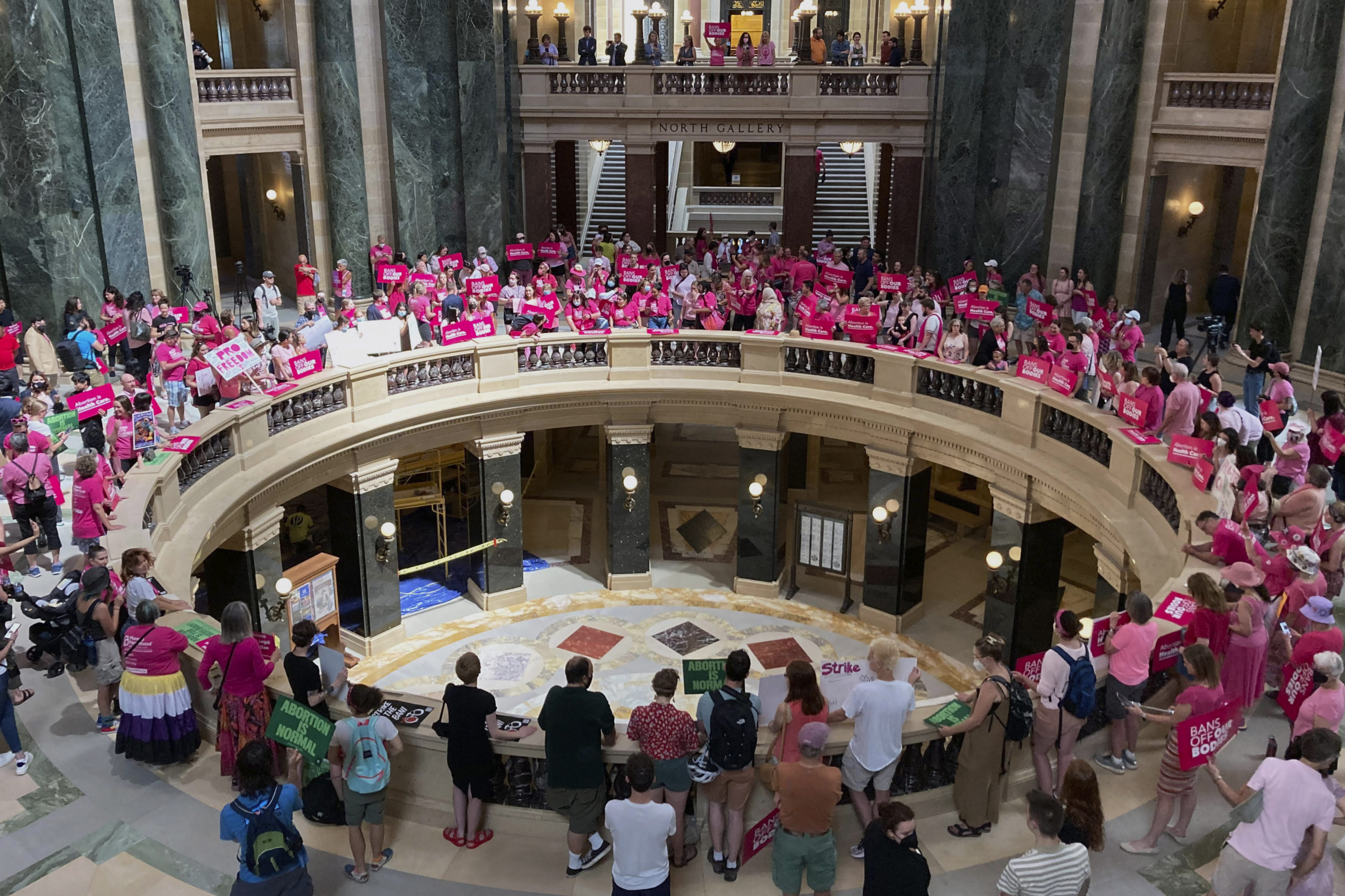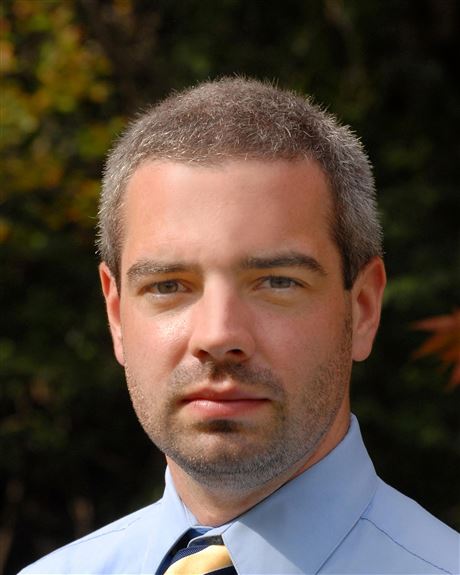
Dozens of protesters gather in the Wisconsin state Capitol rotunda in Madison, June 22, 2022, in hopes of convincing Republican lawmakers to repeal the state's 173-year-old ban on abortions. The reversal of Roe v. Wade demonstrates how state legislatures are crucial for the future of our democracy
The future of our democracy is being written in state legislatures across the country.
They were the focus of coordinated efforts to undermine the 2020 election results, and now, the U.S. Supreme Court has agreed to hear a case based on a fringe legal theory that could give state legislatures unchecked power over election administration.
After the overturning of Roe v. Wade, legislatures are now front and center in determining what rights will or will not be afforded to women. And they are behind a wave of new laws affecting the rights of gay and lesbian people, transgender youth, and others.
During Covid-19, they set rules around masking, business closures, vaccine mandates, and more, and during redistricting, they redrew political lines to determine which segments of a community — and which political party — have power.
Decisions made on the state and local level have a far larger impact on people’s lives than those made in Washington, D.C. And yet there’s less and less dedicated attention being paid to what’s happening in those corridors of power.
From 2014 to 2022, the number of full-time reporters covering state capitols declined six percent, from 904 to 850, according to an April report by the Pew Research Center.
There was an increase in part-time reporters on the beat during the same period — such as reporters that periodically cover a bill as it relates to their beat — but given the scale and scope of what’s occurring and what’s at stake, that rise provides little comfort.
Recognition of the importance of state capitol coverage has been most pronounced among nonprofit newsrooms, which now account for 20 percent of the reporters assigned nationwide, up from six percent nearly a decade ago.
With legacy newspapers continuing to contract and close at a rate of two per week, there is an urgent need to significantly increase investment and capacity in nonprofit news, particularly statewide nonprofits with a significant focus on state legislatures.
When we founded Spotlight PA — an independent, nonpartisan newsroom covering the Pennsylvania state government and urgent statewide issues — in 2019, it was in recognition of the serious deterioration of the Harrisburg press corps.
Since then, our team of reporters has changed the equation in the Capitol in big and small ways. After a recent collaborative investigation into how lawmakers spend tax dollars on themselves, the state Senate for the first time began disclosing all expenses online, and a bill is pending for the House to do the same.
Transparency and accountability are not achieved overnight, which is why we need long-term solutions to sustain state legislative coverage.
That’s the reason we’ve partnered with The Lenfest Institute for Journalism and The Texas Tribune to co-launch the Statewide News Collective, a new community of 27 news organizations across the United States serving statewide audiences.
The purpose is to deepen sharing of best practices around journalism, product development, fundraising, audience growth, staff support, and organizational resiliency. Because statewide nonprofit news operations offer the best path forward to both enhancing capitol coverage and connecting it with as many communities as possible.
Evan Smith, CEO of The Texas Tribune, one of the oldest and most successful nonprofit newsrooms to date, said the rise in power of state legislatures has been noticeable.
“We see in Texas every day that the work of state legislatures has a material impact on the lives of our friends and neighbors — a bigger and more meaningful impact than ever before,” Smith said.
Because state capitol coverage deals with issues much closer to people’s lives, it can work as a counter to the negative hyper-partisan impact of national cable news, especially when it’s focused on policy and accountability as opposed to political gamesmanship.
We’ve found in Spotlight PA’s capitol coverage that policy and voter-centric reporting that tracks wasted taxpayer dollars, ensures programs are run fairly and efficiently, explains the legislative process, and calls out waste, fraud, and abuse across partisan lines connects with the audience. These are the stories people are looking for to make sense of the world around them.
The presence of a watchdog in the halls of power exerts a force that can bend the arc of accountability over time. At a minimum, there is someone there to report what’s happening when lawmakers might otherwise prefer the cloak of darkness.
Christopher Baxter is the executive director and editor-in-chief of Spotlight PA.


